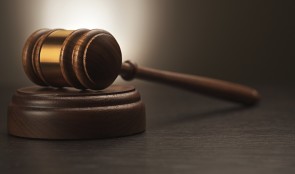Important conversations can begin when you read Tracey Helton Mitchell’s new memoir, The Big Fix: Hope After Heroin, in public. “Is there hope after heroin?” asked a woman near me in a diner when she saw the book’s cover. “Because two of my cousins died from it.”
Indeed, the Centers for Disease Control and Prevention recently announced that “between 2002 and 2013, the rate of heroin-related overdose deaths nearly quadrupled” in the U.S., with more than 8,200 people dying from heroin overdoses in 2013. It’s thought that over-prescription of, and addiction to, opioid painkillers, which are chemically similar to heroin, is part of the problem. “Purdue Pharma, which makes Oxycontin, they’ve made billions,” says Helton Mitchell. “They sold it to people and told them it wasn’t addictive.” The increasing affordability of heroin itself is also a factor in the frightening overdose numbers.
In the last two decades, the rate of heroin-related overdose deaths has nearly quadrupled in the U.S., with more than 8,200 people dying from heroin overdoses in 2013 alone.
Politicians are beginning to address this escalating crisis within their communities. Last week, Senator Kirsten Gillibrand (D-NY) co-proposed an amendment to the Comprehensive Addiction and Recovery Act with Senator Shelley Moore Capito (R-WV). “Our amendment is very simple,” Gillibrand said. “It would require the CDC to issue clear guidelines to our medical community for when it’s appropriate to prescribe opiates instead of something non-addictive…. [It also] requires the CDC to issue these clear guidelines for how much opioid medication our medical professionals can prescribe without putting a patient at high risk for addiction.”
A child of the Ohio suburbs, Helton Mitchell was an exceptional student, eager to please, and not someone who seemed headed for drug addiction—though she did struggle with overeating as a child and depression as a young teen. “I mean, this was the 70s, so there were areas of dysfunction,” she says, “and you really never talked about anything. You never talked about anything, so nothing ever got resolved.”
When Helton Mitchell was attending the University of Cincinnati, a destructive relationship and breakup collided with an experimental impulse—with devastating results. Her use of recreational drugs “wasn’t too serious till I got in this really shitty relationship with this man,” she explains. “He convinced me that I was worthless without him. When we broke up, that’s when my drug use really escalated.” Meanwhile, “a friend and I decided that if we could get heroin, we were going to try it. It was hard to get, but we did get it. This was the early 90s. We thought it was ‘edgy.’ We’d read William S. Burroughs. We’d seen Sid and Nancy. We thought it was this edgy thing we’d do a few times. I never thought it would get its grips on me the way that it did, very quickly.”
Ultimately, Helton Mitchell ended up living on the streets of San Francisco, in and out of jails, supporting her heroin addiction however she could and not expecting to survive it. But yes, there can be hope after heroin. She recently celebrated 18 years clean. Still living in San Francisco, she is married, with three children; she has a Masters in public administration, a substance-abuse counseling certificate, and a full-time job in public health; and she’s the treasurer of the P.T.A. at her children’s school. The Big Fix tells her extraordinary story.
When you look at a lot of books about addiction, it’s “I used, I used, I used.” And the last chapter is: “Then I got clean.” There are no stories about the next part, about what happens then.
“When you look at a lot of books about addiction,” she says, “it’s ‘I used, I used, I used.’ And the last chapter is: ‘Then I got clean.’ There are no stories about the next part, about what happens then.” “Then” is what Helton Mitchell is living now, with levels of peace, health, and stability she feared she’d lost forever. I caught up with her in New York when she visited to do press for the book, which is just out now. Here are five things about heroin addiction that Tracey Helton Mitchell wants you to know.
Recovery is possible, as her own life shows.
“A lot of messaging you see,” Helton Mitchell says, “specifically around heroin, is that it’s impossible to get off. It is difficult to get off because of the withdrawal symptoms, but people get off it every single day. It’s presented as this impossible thing, which is to the detriment of users who want to get clean.”
“There are many roads to the same destination of recovery.”
The way to recover from addiction might differ from person to person: “People should find what works for them,” Helton Mitchell advises, “not what they think the ‘perfect’ recovery is.” Some people need to take antidepressants; some find that cannabis improves their quality of life. “There’s a lot of freedom in choice,” she adds. “When people feel boxed into one space, they don’t do as well as when you provide them with options.”
Naloxone is a drug that saves lives.
Naloxone can chemically interrupt an in-progress heroin overdose. Helton Mitchell says it should be accessible and affordable, along with clean syringes.
Helton Mitchell herself sends Naloxone—via a harm-reduction program through Reddit—to people in need who contact her and who can’t access it affordably. She has received word that this small, grassroots effort has saved 164 lives since she sent out her first package of Naloxone in 2013.
There are free programs to distribute the drug, she explains, but there should be more of them. “The FDA should just make it an over-the-counter drug,” Helton Mitchell says. “All it really does is save people’s lives. But they’ve been dragging their feet on it.” Though she sends Naloxone to those who can’t get it on their own, “I would much rather have someone go in [to a free Naloxone program] and see the demonstration,” she says. “I would rather have someone describe the nuances to them, so they know, in a crisis situation, how to use it.”
“One of the big issues that I work around is this: We’re taking a public-health problem, which is opioid overdose, and we’re switching it from the public-health realm to the private sector. We’re asking the private sector—CVS, Krogers, all these places—to sell Naloxone, when it’s a public-health issue that we should be dealing with. There are public-health programs that distribute Naloxone, but now, with more and more places to buy it, the focus is shifting toward those people who can afford to buy it. That’s one of my main issues.”
The more you find things that you enjoy, the less of a role drugs will play in your life.
And then there are the needles. “Disease prevention is a huge part of syringe exchange,” Helton Mitchell says. “But it’s not just about taking the syringes. When you have syringe-exchange programs, a lot of times that’s the access point for people to get into [rehab] treatment.” As for her own life, “I would say, if it weren’t for the syringe-exchange people who helped me, I would have been dead of AIDS long, long ago. A wide swath of my friends got AIDS. They were using dirty needles. I have used dirty needles, but I wasn’t a person who did that consistently because I had access to clean needles.”
Politics have certainly come into play on this issue: “Even in places where it’s legal to sell syringes, an individual pharmacist can refuse to sell them,” Helton Mitchell explains. “The provision that they use was first used to limit access to Plan B, the so-called ‘morning-after pill.’ When that came out, there was a religious exemption that said the pharmacist could refuse to distribute it. They can use the same clause not to let people buy syringes. And of course, why wouldn’t they? They don’t like the idea of junkies coming in to buy needles. But from a public-health perspective, there are important reasons why they should do it. Instead, there are dirty syringes in the community that no one is collecting, and there are people who have no access to clean syringes and who end up in the emergency room.”
“Whether you’re using or not, find something besides drugs that makes you happy.”
It may seem simple, Helton Mitchell says, but it’s true: “The more you find things that you enjoy, the less of a role drugs will play in your life. When you start adding other things that you like to do—you know, I don’t tell people right off the bat that they should quit using. I tell them they should try using less. I say, you don’t have to commit to stopping, just start out by using less, and see how you feel.”
Though there can be hope after heroin, real life will always be imperfect.
“Another thing people don’t know,” Helton Mitchell says, “is that when you get off drugs, you don’t feel good every day. When you get back into society, you’re not going to feel good all the time. Some people, when they get off drugs, are shocked to figure out that they have depression or other physical health issues they didn’t know were going on. Not feeling good is okay. There are also going to be times when you have incredible highs in your life, and you should celebrate those, but they won’t always last. You have to learn to deal with the ebbs and flows.”
When you get back into society, you’re not going to feel good all the time. Some people… are shocked to figure out that they have depression or other physical health issues they didn’t know were going on. Not feeling good is okay.
It’s safe to say that with the release of The Big Fix to great acclaim, from press and readers alike (it’s “worthy of being devoured,” says one reader; “I could not put the book down once I started it…. I was left with a much better understanding of my step-daughter’s addiction”), this is an exciting and gratifying time in Helton Mitchell’s life—a life she has fought for and does not take for granted.
Pamela Grossman lives and writes in Brooklyn, NY. Her work has been published in outlets such as the Village Voice, Time.com, Salon.com, Ms., and Real Simple. She believes in the tremendous power of everyone pitching in.
Worth your time
- Non Gamstop Casinos UK
- Best Non Gamstop Casinos 2025
- Non Gamstop Casinos UK
- Non Gamstop Casinos UK
- Casinos Not On Gamstop
- Casinos Not On Gamstop
- Casino Not On Gamstop
- Casino Italiani Non Aams
- Online Casino Canada
- Non Gamstop Casinos Uk
- Best Non Gamstop Casinos
- Meilleur Casino En Ligne France
- Casino Sites Not On Gamstop
- Non Gamstop Casino Sites UK
- Casino Online Non Aams
- Casino Sites Not On Gamstop
- Non Gamstop Casinos
- Meilleur Casino En Ligne France
- Meilleur Casino En Ligne Francais
- Casino Sites Not On Gamstop
- Non Gamstop Casinos UK
- Casinos Not On Gamstop
- Migliori Siti Casino Non Aams
- Meilleur Casino En Ligne
- Casino Non Aams








I, like Tracey have recovered from heroin addiction. It is possible and like her I was lucky enough to have multiple forms of support in my journey. The help is out there and Tracey’s book starts this conversation in an intelligent, and compassionate way.
So glad to hear this, KevinMc. Yes, there is hope out there and the real possibility of a good life that is not dominated by drugs.
Very glad to hear this!! Yes, there is hope and the real possibility for a good life that is not dominated by drugs.